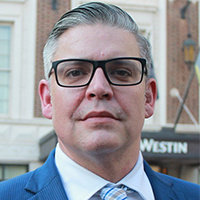Pelzer RICO Act Lawyer, South Carolina
Sponsored Law Firm
-
 x
x

Click For More Info:
-
The Law Offices of Richard L. Cooper, P.A.
848 Brickell Avenue Suite 800 Miami, FL 33131» view mapDWI/DUI, Drug Trafficking, Felony Nationally Ranked Top 40 Under 40
With Richard L. Cooper you can expect a trusted confidant who will work diligently to fully understand your case and determine a road map to help you regain control of your life.
800-756-2781
Not enough matches for Pelzer RICO Act lawyer.
Below are all Pelzer Criminal lawyers.
W. Chris Castro
✓ VERIFIEDAttorney W. Chris Castro is a solo practitioner and the founder of the Castro Law Firm, LLC located in Greenville, South Carolina. His practice prima... (more)
James Stone Craven
✓ VERIFIEDJames Craven proudly serves Greenville, South Carolina and the neighboring communities in the areas of criminal defense, divorce & family, lawsuit & d... (more)
Erika Denise Baldwin
✓ VERIFIEDErika Denise Baldwin is a practicing lawyer in South Carolina handling criminal defense matters.
D. Graham Buckner
✓ VERIFIEDAttorney Graham Buckner’s practice is primarily focused on helping injured workers as well as criminal defense. If you have been injured at work, Gr... (more)
David Arthur Braghirol
✓ VERIFIEDDavid Braghirol is a practicing attorney in the state of South Carolina. He graduated from University of South Carolina with his J.D. in 1997. He curr... (more)
FREE CONSULTATION
CONTACTJefferson G. Wood
FREE CONSULTATION
CONTACT
 Richard L. Cooper Miami, FL
Richard L. Cooper Miami, FL AboutMiami Attorney at Law
AboutMiami Attorney at Law ServicesCriminal Defense
ServicesCriminal Defense





